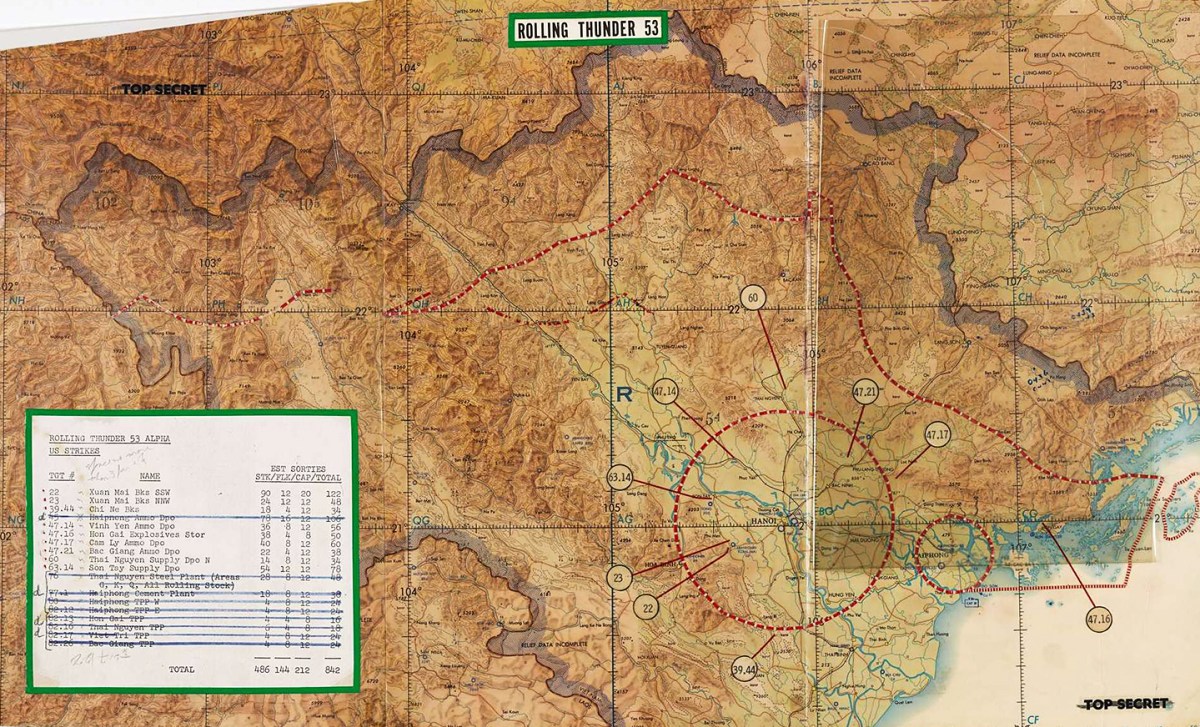What happens when the commander-in-chief doesn’t understand how to command a military operation but insists on doing it anyway — down to the last detail? That’s exactly what happened during Operation Rolling Thunder under the excessively watchful eye of U.S. President Lyndon B. Johnson.
In a prime example of a mismatched wedding of political ideas to military goals, Johnson’s administration decided that North Vietnam had to be heavily bombed and yet spared at the same time. Does that sound confusing? Some members of the U.S. military thought so, but Johnson decided to solve that problem by simply taking charge of the whole matter himself — from quite some distance away from the scene of the action, of course.
The White House dictated to U.S. bombers exactly what to target and what flight paths they were allowed to take. “They can’t hit an outhouse without my permission!” boasted Johnson. Expecting pilots to fly missions over North Vietnam in approved areas, he seemed to regard his constant meddling as a remarkable exercise in precision. However, a consequence of Johnson’s interference in the operation was that the North Vietnamese easily predicted the flight paths of American planes and were prepared to shoot them down before they arrived.
This cost American lives.
In an interview with Vietnam magazine, former U.S. naval aviator Don Purdy said of Operation Rolling Thunder: “The whole concept of micromanaging it from the White House was absurd. There was no targeting discretion left to the people on scene. It was all directed from Washington. It was stupid. We lost a lot of guys out of the sheer stupidity of the way it was run.”
This Rolling Thunder strike map from January 1967 shows zones marked in red where bombing was prohibited by the White House. This image, preserved in time, is a lasting testament demonstrating how American airmen ordered to strike at the enemy were hamstrung in having to mind the dotted lines.
historynet magazines
Our 9 best-selling history titles feature in-depth storytelling and iconic imagery to engage and inform on the people, the wars, and the events that shaped America and the world.


